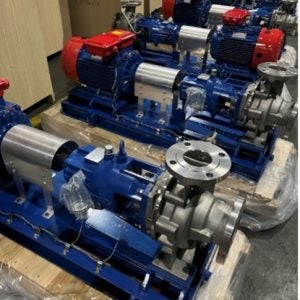Energy Fuels on 29 July announced a strategic alliance with Colorado-based technology development company RadTran, to evaluate the recovery of thorium, and potentially radium, from Energy Fuels’ existing rare earth (RE) carbonate and uranium process streams for use in the production of medical isotopes for emerging targeted alpha therapy cancer therapeutics. This initiative will complement Energy Fuels’ existing uranium and RE Carbonate businesses, as it will investigate the recovery of isotopes in existing process streams at the White Mesa Mill in Utah.
The initiative will evaluate the recovery of thorium, and potentially radium, for medical purposes. Elements derived from the thorium and uranium decay chains can be used in targeted alpha therapies to treat cancer on a cellular level, but shortages in both domestic and global supplies pose major roadblocks in the research and development of new drugs, the company said. White Mesa is the only conventional uranium mill currently operating in the USA.
However, existing US and global supplies of thorium and radium are in short supply, and existing methods of production are costly and currently unable to scale-up to meet widespread demand as new drugs are developed and approved. These are major obstacles to the research and development of new drugs, as pharmaceutical companies wait for scalable and affordable production technologies to become available.
Energy Fuels said the Mill can represent a possible solution to this medical supply chain issue. It is the only licensed and operating conventional uranium mill in the USA, and it recently began production of RE Carbonate from natural monazite sands. Monazite sands, natural uranium ores, and certain other feed sources for the Mill contain thorium-232 and radium-226, which would normally be disposed of permanently in the Mill's tailings following processing for uranium and RE Carbonate recovery.
As an initial step in this medical isotope initiative, Energy Fuels and RadTran will now evaluate the technical and economic feasibility of recovering Th-232, and potentially Ra-226, from the Mill's natural monazite and other existing feeds, subject to receipt of any required licences, permits and regulatory approvals. These isotopes are a necessary precursor to the specific medical isotopes needed by pharmaceutical companies for emerging cancer therapeutics. If this initial step is feasible, Energy Fuels and RadTran will then evaluate the feasibility of recovering radium-228 from the Th-232 and thorium-228 from the Ra-228 at the Mill using RadTran technologies, with the backing of the Pacific Northwest National Laboratory in Richland, Washington. The recovered Ra-228, Th-228, and potentially Ra-226, would then be sold to pharmaceutical companies and others to produce the short-lived isotopes which are medically attractive for the treatment of cancer, including lead-212, actinium-225, bismuth-213, radium-224, and radium-223.
"The Alliance between Energy Fuels and RadTran is remarkable as it aims to alleviate the major bottleneck in the targeted alpha therapy market. Upon the successful production of these isotopes at the Mill, this Alliance will allow pharmaceutical companies who are developing targeted alpha therapies to progress through clinical trials and deploy therapeutics commercially without the hinderance of isotope supply," said Dr Saleem Drera, Founder and CEO of RadTran.
"At its heart, the Energy Fuels' Alliance with RadTran is about maximising the value and human benefit of our existing uranium and rare earth feeds at the White Mesa Mill," said Mark S Chalmers, President and CEO of Energy Fuels. "In our view, recovering medical isotopes from these same streams, that would otherwise be lost to direct disposal, is a great way to maximally use all of our feeds.”






